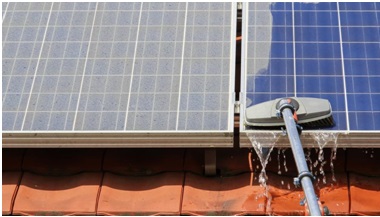Utility grid obsolescence, ecological issues, prices… So many things are pushing people to consider other options and take it upon themselves to source their own energy. Solar power is user-friendly, doesn’t have prohibitive costs and enjoys many incentives and rebates. But how do solar panels work for your home? Let’s take a closer look.
How many solar panels are needed to power a house?
How many panels are enough? The answer to this question depends on how much energy your house requires. You can easily find this information in your utility bill. Once you know how many kilowatt hours you use per month, it will be easy to calculate your hourly consumption. This number multiplied by the amount of peak sun hours in your area should be divided by a panel’s wattage to get the final answer.
Of course, unless you’re building a fully off-grid system, it is not necessary to base the size of your array on your power usage. Even a small setup will offset some of your energy requirements and will save you a bit of money on bills with net metering. Alternatively, a very large array could pay your utility bills or become a source of income if net metering in your area supports payouts.
Factors that increase the efficiency of solar panels for your home
Increasing efficiency of your solar panels is a simple way to get more useful work out of your investment. There are a few simple rules that will keep you PV modules efficient and thus shorten their payback period.
- Wise placement is key. It is not enough to buy the panels and install them just anywhere. The closer your panels are to a south-facing position, the more efficient they will be.
- Avoid shading. Before installing, make sure there are no objects that would cast shade on your modules. Taking into account how solar panels work, shading may be critical. A seemingly small issue like this could cause the whole string of panels to underperform.
- Keep your panels clean. Should anything get in the way between the panels and the sun, the performance will inevitably go down. Try to keep them free of sand, snow, leaves, etc.
FAQ – How do solar panels work?

Finally, how do solar panels work for your home? The principle is actually very straightforward and was discovered almost two centuries ago. The photovoltaic effect can be observed in semiconductors when they are exposed to light. Photons speed up the flow of electrons inside the material, which creates direct current. This current is then converted into AC by your inverter and can be used by your home appliances or exported to the grid. If you’re interested, take a look at a more detailed explanation of how solar panels work.
Do solar panels work on cloudy days?
Some manufacturers claim better performance in low light conditions. While they do not lie, solar panels will be considerably less efficient with a thick layer of clouds in the sky. Even the best PV modules will output a mere 10 to 30% of their normal capacity depending on the foulness of weather.
Do solar panels work on winter days?
When talking about solar panels, how they work in winter is an interesting fact. The problem is that past 77°F the modules start to decrease in efficiency, and on hot sunny days the solar cells often reach much higher temperatures. Thus, cold weather is beneficial for solar harvests. The only problem is that days tend to be shorter in winter and this season may bring snow or other weather events that will decrease your yields.

Do solar panels work at night?
Based on how solar panels work, the short answer is they don’t operate at night. Of course, there is always some light present, whether from human-made sources or the Moon and the stars. However, it is not nearly enough to generate any noticeable amount of power. At night solar panels get a rest, but if your system includes batteries, your daily proceeds can easily last you throughout the night or even for a couple of days.




